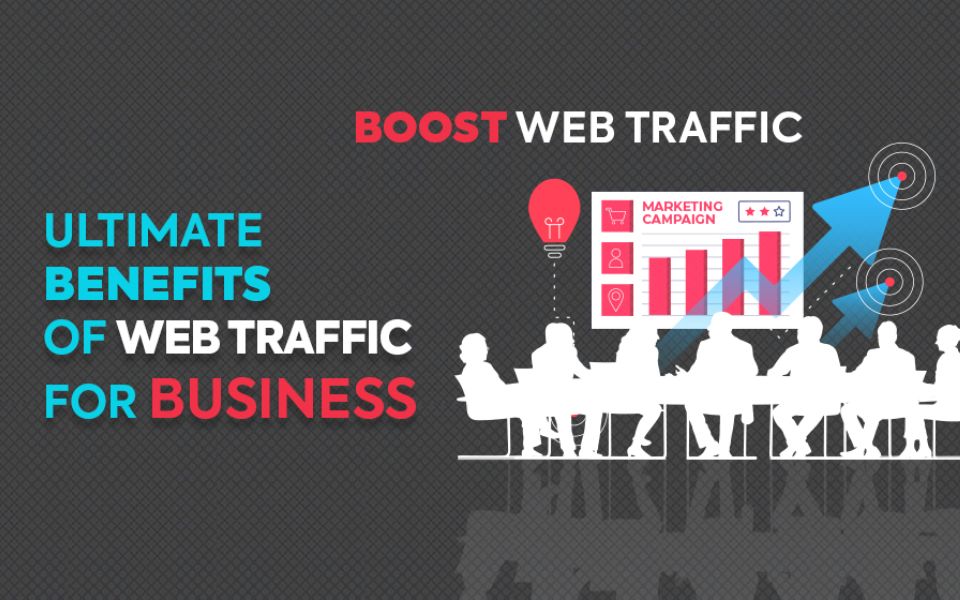Subscribe to Our Newsletter
Stay updated with the latest tips and strategies. Get additional discounts and alerts on offers.

In a good night dream, I was driving a business person.
I saw posters mentioning “Businesses to expect more traffic this month.” I got frustrated and was mourning to myself. A business person told me, “Relax, it is web traffic, it has got nothing to do with you.”
In a few seconds, we were stuck in traffic. It was a vast traffic jam. In that traffic signal, a person was selling some magazines and earning money. Showing this scene, the business person replied to me, “See! traffic brings more business.”
The traffic he meant on both the occasions were Web traffic, not the road traffic.
I hope you won’t get confused about web traffic, like how I was.
25-33% of email addresses become outdated every year. So it shouldn’t surprise you that list churn depletes about 25-30% of the average email list every year
You dream of getting blockbuster deals! You dream of expanding your sales funnel! The reality is harsh. Your conversion rates remain saturated and falling at times.
What makes this so unique? Conducting an automated data hygiene process is highly essential. Isn’t it?
Without involving data cleansing and maintaining data hygiene, you can never take the next step towards attaining a consistent data quality.
Instead of doing a manual one-time database audit, you can conduct automated data hygiene practice. It would help if you integrated database maintenance and regular data hygiene into day-to-day workflows.
Hence, it would help if you got your b2b data ready for this automated data hygiene process. How do you get it?
Here’s the way!

“Regular content update and regular backlink mean more traffics.” – Jounayet Rahman
Wouldn’t it be great if your business attracts more visitors? Web traffic is not the primary component to the companies to make more deals. Without obtaining web traffic, it is like imagining for bathing with an empty bucket that has no water.
Web traffic means web users who visit a website. It is measured as sessions or even visits. It scales the effectiveness of online businesses to attract the audience.
More simply, Web traffic is all that a shop needs to attract the customers to visit them. The shop could be a physical shop, website or even an e-commerce site.
Reaching out to the customers is highly essential to obtain more business deals, and a Web Traffic does reveal how much are you being visited online. Web traffic is of various kinds.

Organic traffic:
Organic traffic is something that lands you on a website, as you search a keyword on a search engine. It would help if you optimized your site for product and industry specific keywords.
Fifty-one percent of all website traffic comes from organic search, 10 percent from paid search, 5 percent for social media, and 34 percent from all other sources. (BrightEdge)
Direct traffic:
Direct traffic refers to those who directly type your website in the URL column. For this, the users must know about your site. You need to place your site’s URL on product packaging, business cards, and so on.
Search traffic:
Search traffic implies answers relating to user searches. It may be even the problem they had solved. The company must employ content that addresses the question or the issue of the target audience. It would be best if you possess a complex conversion mechanism to educate the audience further while selling.
Paid traffic:
Paid traffic refers to the users who enter your websites through your paid advertising campaigns. Different platforms run pay per click ads like Google AdWords, Yahoo, Bing, Facebook, and other social media sites.
Email marketing traffic:
Email marketing traffic is the traffic generated by the links you send through marketing emails.
Social media traffic:
Social media traffic brings in more customers through your presence in social media. Your presence in social media sites like Twitter, Facebook, Ping, and Instagram and so on, brings the secondary audience in the beginning. Later, they would multiply. It is just like a snowballing effect. All you must do is divert the users’ attention and get your campaigns done through emails.
“Social media drove 31% of overall traffic to sites.”- Shareaholic
Referral Traffic:
Referral traffic means traffic that occurs on your site, as a result of a referral made on your website from another site. It is the result of someone’s link on your site. You must write compelling content on your site. Through the flow of navigation, you must direct the users to turn to your site.
Web traffic and conversion, when mingled together create business deals.
Therefore,
Business without web traffic is senseless
Business without conversion is worthless

Successful sales:
Users on web traffic are your potential customers. The more you develop your web traffic, the more is your sales
Search engine ranks:
A higher traffic will get your site to rank ahead on Google pages. You can rank well in search engine results
Content marketing strategies:
With the insights of Web traffic, you can learn what kind of content audience demand and prepare relevant content according to it
Brand Awareness:
Web traffic increases your Brand awareness. Increasing traffic expands your market base and extends your audience
Website Response:
It helps you understand the elements of a website that catch user’s attention and customize your web features accordingly
Let’s dig a little deeper. You may think that web traffic is not highly significant. General web traffic is not essential. The web traffic of a specific and targeted audience matters a lot.
In that way, let us see the benefits of web traffic.

Consistent website:
There are many instances, where you get higher website traffic. Some days, you don’t. Website traffic determines a constant number of visitors to your site. It can help you maintain consistency of visitors to your site
Relevant website:
Web traffic insight helps you in building targeted website traffic, rather than vague web traffic. Targeted website traffic can rank your site relevant in search engines. It also helps to reduce the bounce rates on your site
SEO Ranking:
Web traffic is one among the indicators that different search engine sites like Mozilla Firefox, Google, and Bing use to determine your website relevance. A higher number of visitors to your site makes the search engines to rank you higher in search results
Increased sales:
Of course, there is no fire without smoke. There are no sales without web traffic
Quality traffic:
With the right web traffic insights, you can know how your visitors reached your site. See to that you rank better on search engine traffic, to increase your web traffic
New traffic sources:
Exploring new traffic sources is essential to end up business deals on a profitable winning note. Get yourself to rank on a website, using targeted web traffic loopholes. Some sites do not target a keyword that is highly searched. Hunt for such keywords to build better traffic
Long term potential:
Web traffic will not bring in the deals on the way. In short: As you sow web traffic, so shall you reap your deals. Web traffic is an investment for the future business deals
Explore the web traffic:
You must have some web traffic to do A/B testing for finding visitor engagement with the content. Web traffic is the essential element to conduct A/B testing and test site responsiveness
The more the traffic, the higher is the reliability of the A/B testing results. Higher the A/B testing, greater the chances to increase traffic. It is just a cobweb cycle.
”51.8 percent of all Internet traffic comes from bots, while only 48.2 percent of internet traffic comes from humans.”- Web hosting and internet statistics report, 2019.
It begins with a feeling of happiness that when there is more traffic, I will raise more money. Hold on with that emotion. The game is yet to unfold. The above stats mention that more than half of the web traffic is bot-driven.
According to a study by Incapsula, in 2015 the traffic driven by humans was 51% of the total and 29% by bad bots.
Traffic that the bots or software generates is called Fake web traffic. When there is fake web traffic, it means human interactions don’t create web traffic.

Bounce rates:
You must be concerned if there are incredibly high bounce rates
Pages per sessions:
Extreme low pages per sessions is also a cause for concern
Average session duration:
Higher instances of short term session is a concern to check for the fake web traffic
New sessions:
Highly greater and completely lower rate of new sessions is also a symptom of this fake web traffic
Geography:
If a website content that is intended for English language audience gets more web traffic from non-English speaking countries then it may also be a concern for fake web traffic
User interaction:
A high number of unique visitors to social media. Moreover, I am having no communication like comments or like is also a concern to recheck the web traffic
These issues of fake web traffic are easy to solve when you connect your website to Google Webmaster tools. The Google bots will crawl and find the error pages and send alerts to your email.
You have sweated your blood and made enough things to achieve more deals. Your web traffic is essential if you expect for leads with email marketing.
B2B businesses always expect to achieve maximum web traffic from which they get leads, sales prospects, and deals.

Subscriber list:
When you start your email marketing campaigns, you can start with the subscriber list you already possess. You need to follow the double-opt-in procedure to get an official email list. It is also called Permission-based email marketing.
Landing page:
If you have highlighted or emphasized an offer in the email, you must also mention and highlight them on your website landing page.
You must ensure that you send the email with information that interests the customers. Many companies follow the step of asking the customers about their interests. They may belong to some categories and sub-specific interests too.
Email and website metrics:
When click-through- rates do not perform to the level you expected, you must focus on getting your email copy and call to action right. Keep checking for the amount of traffic, time spent on a page, and a number of pages visited.
Social media:
You need to integrate your website with social media Never forget to put social sharing icons on your website. You must make sure you provide a consistent marketing experience.
Mobile optimization:
You should start making your website mobile responsive. It would help if you also designed a responsive email template that is compatible with all the devices
“73 billion: The estimated number of phone calls that will be generated from mobile search alone by the end of 2018.”- (Acquisio)
Content:
There is no doubt that content is the king. It is the pivot around the process of converting web traffic into deals. Rather than including too much information in the email, you can include less and impactful content with images, opt-in and call to actions
Users if interested can log in to your website and read about you. You must build active experience to prompt customers to search for your business.
You must also provide free downloads, lead magnets and remarketing campaigns to get your visitors struck across various buying stages.
61% of marketers say generating traffic and leads is their top challenge. (HubSpot, 2018)
Do you want to know more on opt-in email marketing list and get access to the influential top decision makers in the market for your business? Reach us out at www.datacaptive.com or [email protected]
None can deny the fact that web traffic determines the success of your site. Dress not measured is outdated and inconvenient for a person. When you don’t regulate web traffic, you are detaching away from your business.
It’s time we get into indicators to measure the web traffic.

Click through rate:
It is the percentage of people who click on your site. It can be a search result listing or link from another website
Time on site:
It is the average amount of time a visitor spends on the website
Page views per session:
It is the average number of page views a user sees per visit. Session is the group of interactions that take place on a single moment in your website at a single time frame
Unique page views:
Number of sessions during which visitor views that page one or more times
Return visits:
Percentage of the returning visitors for the time frame
The action taken:
These are the percentage of the visitors, who took action on your site. The action on your site may be requesting a free demo, making a purchase, subscribing to the newsletter, sharing your content on social media and so on
Bounce rates:
Percentage of visitors who left your website after viewing only one page in your site
Let’s face it. You must know how other companies raised their web traffic very effectively. There are many sources of increasing web traffic.
You can get Web Traffic from 7 different sources. They are


Canva:
Canva reengineered their blog design strategy. They wanted to create content that would inspire visitors to design, so, they conducted a competitor analysis to find out which content performed the best.
Using Buzzsumo and Quora, they found out the best performing topics in their niche. They asked their readers what content they would like and studied their habits through Twitter and Facebook. With all these available resources, they built a blog strategy to perform which paid them back adequately.
QuickSprout:
QuickSprout from Neil Patel showed how a unique and informative piece of content could attract massive traffic to their site. He built an advanced and step-by-step guide to It increased the visitors to QuickSprout from 16000 to 18000 visits every day.
Neil Patel modified all the code and removed unnecessary plugins to increase website loading time to 1.21 seconds from 1.9 seconds. It raised the direct traffic of 2000 visitors a day.
Back-Linko:
Back-Linko follows a skyscraper technique where their organic traffic increased in just 14 days. Skyscraper technique is finding content-worthy links and writing a content better than that.
Kissmetrics:
Kissmetrics proved that longer posts performed well than the shorter posts. They focused on infographics with their They put the complex information in a visual and straightforward appealing format. They got quality links from sites like Forbes and Huffington Post.
Vero:
Vero crafted a 5000 plus blog post after thorough keyword research. They aimed to create only user-friendly post. They also provided email marketing tips which were easy to navigate and also offered real-world examples with quotes and solutions from experts. It helped users to land on 2.5 million visitors from 47 infographics
Buffer:
Instead of cleaning and erasing with content audit, Buffer carried out a simple strategy of trial and error. It tracked the performance of its previous blog posts and found out what their audience do not prefer which made their task easy. It found out that long-form educational blog posts performed well and replicated its success. They provided industry-insights and relevant industry conversations and updated and republished the old It increased their organic search to 700 views per day and just found out which part of content has steady web traffic and worked them out. “Updating and republishing old blog posts can increase traffic more than 100%.” –Back-Linko report
Ahrefs:
Ahrefs undertook content audit and deleted 266 blog posts from their websites in 2015. It didn’t remove the backlinks for their deleted blog posts and instead provided a redirect option for those backlinks. They also reduced the frequency of their blog posting and increased the quality of the content.
Ahrefs use Craftsman method wherein they take a group of keywords and long tail keywords so that they can rank for more than a thousand long-tail keywords. They increased their traffic to 89 percent in 3 months, and although they missed some testing and tracking, they enhanced their page visits
Moreover, the bottom line is you must work on new strategies to get more traffic.
Not everyone can get colossal web traffic
However, immense web traffic can come from anywhere,
You must be ready to get them.
“Ask for the unlocked findings available,” Jesus says. It applies to traffic. So take the next step and give it a go. For more queries on email marketing and web traffic, connect to us through www.datacaptive.com.
Show Some Love!

Subscribe to Our Newsletter
Stay updated with the latest tips and strategies. Get additional discounts and alerts on offers.
Related Articles
Subscribe to Newsletter
Stay up to date with the latest marketing, sales, and service tips and news.
